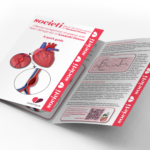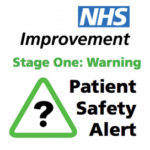We’re working to share knowledge and best practice, evidence based information.
Why? Because Societi research and our conversations with clinicians across the UK have revealed sometimes inconsistent management approaches to both acute Kawasaki Disease and long term management / clinical care arrangements. This means children affected may not always get the best possible care. Help us change this.
Useful Resources and Research
European consensus-based recommendations for the diagnosis and treatment of Kawasaki Disease – the SHARE initiative
The European Single Hub and Access point for paediatric Rheumatology in Europe initiative aimed to optimize care for children with rheumatic diseases. Kawasaki Disease is the most common cause of acquired heart disease in children and an important cause of long-term cardiac disease into adulthood. Prompt diagnosis and treatment of Kawasaki Disease is difficult due […]
More details
Management of Kawasaki Disease
Abstract Kawasaki disease (KD) is an acute self-limiting inflammatory disorder, associated with vasculitis, affecting predominantly medium-sized arteries, particularly the coronary arteries. In developed countries KD is the commonest cause of acquired heart disease in childhood. The aetiology of KD remains unknown, and it is currently believed that one or more as yet unidentified infectious agents […]
More details
Lifetime management of patients with heart damage due to Kawasaki Disease – A quick guide

The information in this leaflet has been directed by the Societi Scientific Advisory Board. It is intended for educational purposes only and does not constitute medical advice. For guidance, please access the full version of Lifetime cardiovascular management of patients with previous Kawasaki Disease here
Download
More details
Lifetime cardiovascular management of patients with previous Kawasaki Disease
Increasing numbers of patients who suffered Kawasaki Disease in childhood are transitioning to the care of adult services where there is significantly less awareness and experience of the condition than in paediatric services. The aim of this document is to provide guidance on the long-term management of patients who have vascular complications of Kawasaki Disease […]
More details
Understanding some of the possible longer term issues

A leaflet written for parents and carers of children who have been affected by Kawasaki Disease.
Download
More details
Utility of Coronary Computed Tomography Angiography in the Diagnosis and Management of Acute-Phase Adult-Onset Kawasaki Disease
A Japanese paper describing the use of CCTA to support Kawasaki Disease diagnosis.
More details
NHS Improvement Service – Patient Safety Alert – Stage One Warning

This is a patient safety alert issued in May 2016 to all NHS Trusts in England. It asked for action from all providers of NHS funded care to assess and act on risks re failure to recognise acute coronary syndromes in Kawasaki Disease patients.
Download
More details
The emergence of Kawasaki Disease in India and China
Diagnosis and management of Kawasaki Disease in developing countries
More details
Management of Kawasaki Disease in adults
This review addresses gaps in the current knowledge of the disease and its optimal treatment, differences in the AHA and JCS guidelines, targets for future research and obstacles to transition of care from adolescence into adulthood.
More details
Corticosteroid therapy in Kawasaki Disease
This study suggests that corticosteroids combined with IVIG as initial therapy for KD showed a more protective effect against CAA, compared with conventional IVIG therapy, and the efficacy was more pronounced in the high-risk patient group.
More details
Diagnosis, Treatment, and Long-Term Management of Kawasaki Disease: A Scientific Statement for Health Professionals From the American Heart
AHA 2017 recommendations provide updated and best evidence-based guidance to healthcare providers who diagnose and manage Kawasaki disease, but clinical decision making should be individualized to specific patient circumstances.
More details
Kawasaki Disease – Pearls and Pitfalls
An article on the diagnosis and treatment of Kawasaki Disease.
More details





 Kawasaki Disease Management
Kawasaki Disease Management